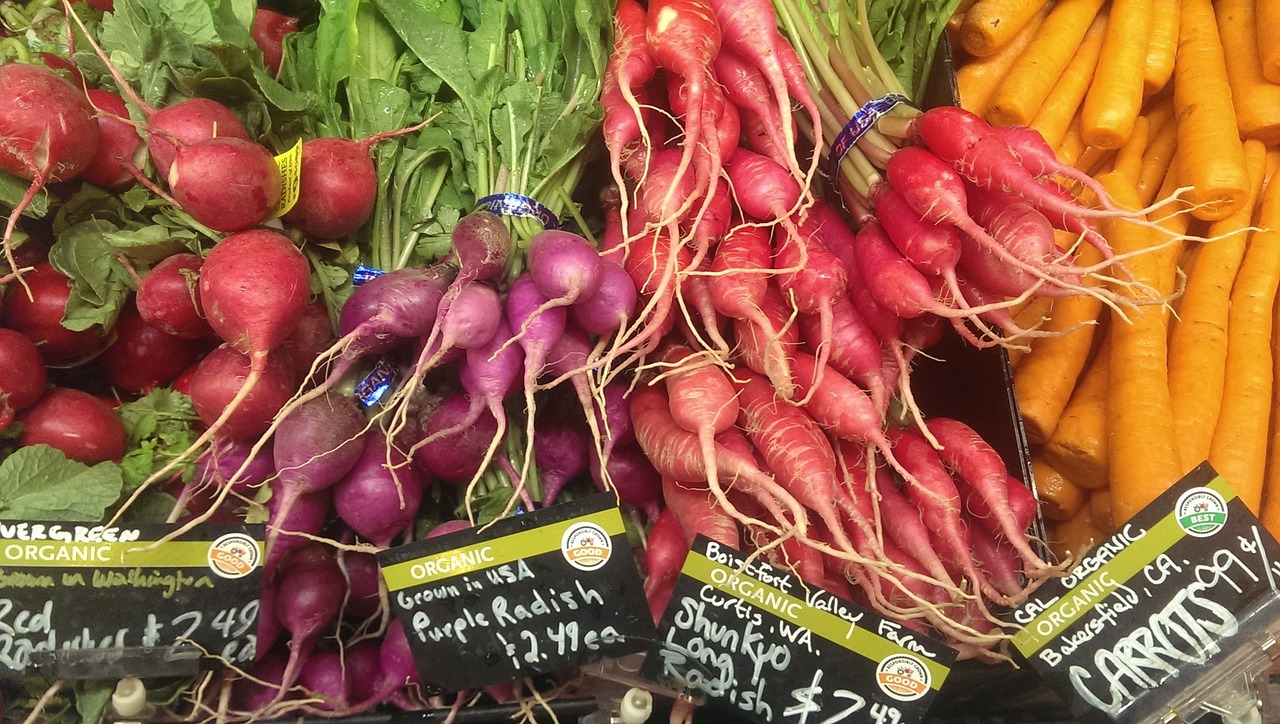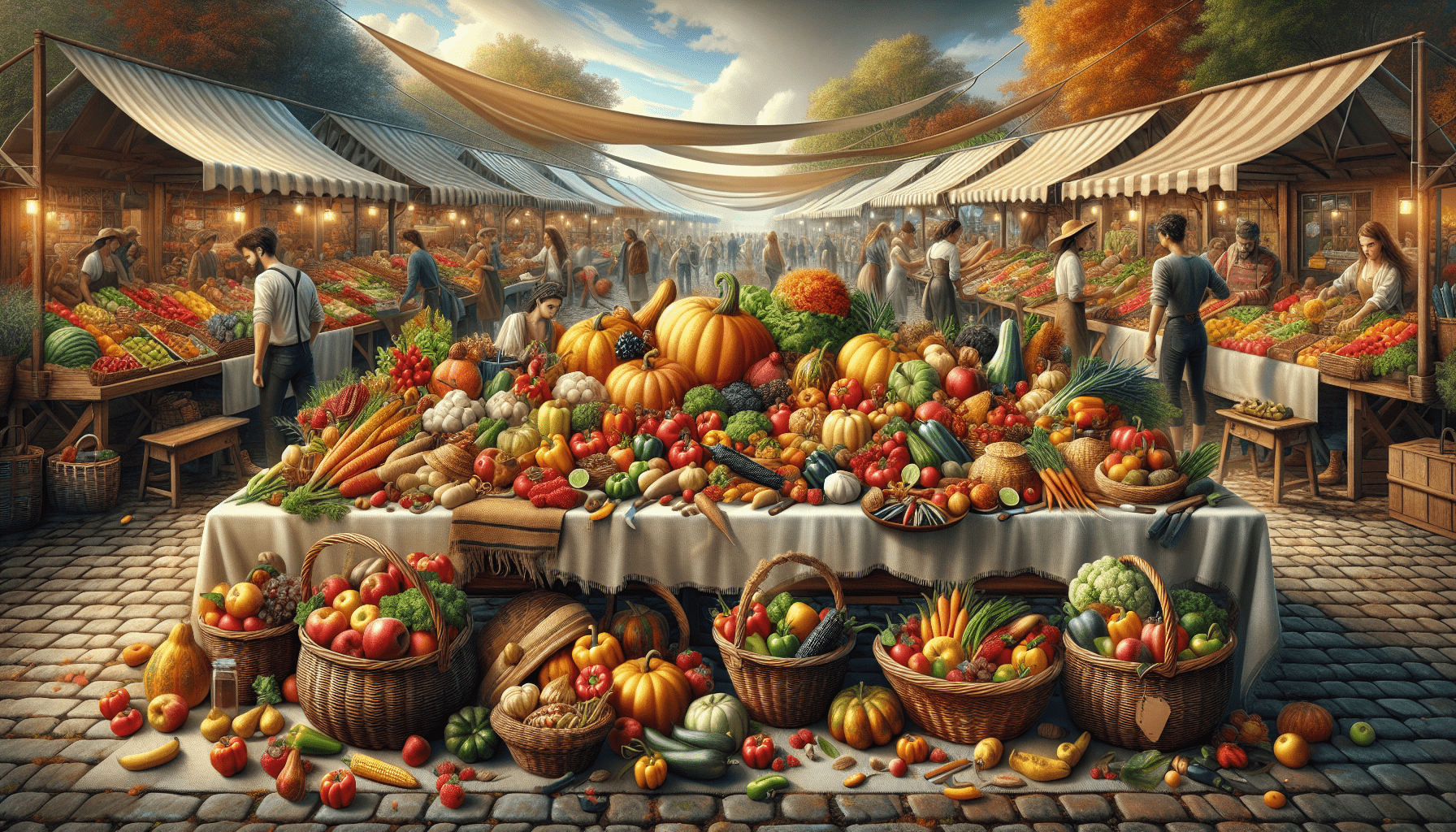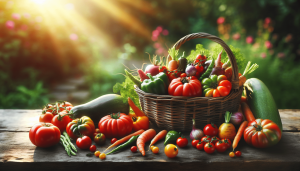Sure, let’s dive right in!
Finding local farmers’ markets can be both fun and rewarding, and we’re here to make that journey easier for all of us. In this article, “How Can I Find Local Farmers’ Markets?”, we’ll explore a range of practical tips and resources to help us discover those hidden gems where fresh, local produce is just a short trip away. Whether it’s through handy apps, community bulletin boards, or a bit of old-fashioned exploring, we’ll uncover multiple ways to connect with local farmers and enjoy the bounty of our surrounding agricultural communities. Let’s get started on this fresh adventure together! How can we find local farmers’ markets?
When we think about fresh, local, and sustainable produce, the first thing that comes to mind is often farmers’ markets. But finding a good farmers’ market near us can sometimes feel like a scavenger hunt. Luckily, we have various methods and tools at our disposal to discover these gems in our community. Let’s explore how we can find local farmers’ markets and make the most of our visits.

Why Visit Farmers’ Markets?
Before diving into the ways to find farmers’ markets, let’s discuss why we should visit them. Farmers’ markets offer numerous benefits that extend beyond just obtaining fresh produce.
Fresher and More Nutritious Produce
Unlike products sitting in supermarkets for days, the foods available at farmers’ markets are often harvested within the past 24 hours. This means the produce is fresher and retains more of its nutrients.
Supporting Local Economy
By shopping at farmers’ markets, we directly support local farmers and businesses. Our money goes back into the community, helping to sustain local agriculture and contribute to the local economy.
Environmentally Friendly
Local produce requires less transportation, which means lower carbon emissions. Many farmers at these markets also use sustainable practices, reducing the environmental impact even further.
Unique and Seasonal Offerings
Farmers’ markets often offer unique products that we might not find in regular grocery stores. We can find heirloom vegetables, artisanal cheeses, and seasonal fruits that provide variety to our diets.
Methods to Find Local Farmers’ Markets
Now that we know why farmers’ markets are a great option, let’s look at several methods to help us find the best local farmers’ markets.
Online Resources
Online Directories
One of the easiest ways to find local farmers’ markets is through online directories. Websites like LocalHarvest and the USDA’s National Farmers Market Directory offer searchable databases of markets based on location.
- LocalHarvest: This resource provides detailed listings of farmers’ markets, CSA (Community Supported Agriculture) programs, and farms around us.
- USDA’s National Farmers Market Directory: Managed by the United States Department of Agriculture, this directory is comprehensive and frequently updated with market information across the country.
Google Maps
Google Maps is another excellent tool for finding farmers’ markets near us. Simply type “farmers’ market near me” in the search bar, and it will display nearby markets along with their ratings and reviews.
| Tool | How to Use It |
|---|---|
| LocalHarvest | Visit website and use the search feature |
| USDA Directory | Visit USDA’s website and use their directory search |
| Google Maps | Search for “farmers’ market near me” |
Mobile Apps
There are several mobile applications designed to help us find local farmers’ markets quickly and efficiently.
Farmers Market Finder
This app uses our location to identify nearby farmers’ markets and provides information about the vendors, produce available, and operating hours.
Farmstand App
A user-friendly app that not only helps us locate farmers’ markets but also highlights special events and seasonal offerings. Users can also leave reviews and ratings, making it easier for first-time visitors.
Social Media
Social media platforms such as Facebook, Instagram, and Twitter are also useful for finding local farmers’ markets. By following local farmers, community groups, or hashtags like #FarmersMarket, we can stay updated on market locations, hours, and special events.
Community Boards and Local News
Don’t overlook community boards and local news sources. Often, community centers, libraries, and coffee shops have bulletin boards featuring local events, including farmers’ markets.
Word of Mouth
Sometimes the best recommendations come from those we trust. Asking friends, family, or neighbors about their favorite farmers’ markets can lead us to hidden gems.
Making the Most of Our Visit
Once we’ve found a local farmers’ market, it’s essential to know how to make the most of our visit. Here are some tips to help us get the best from our farmers’ market experience.
Plan Ahead
Check the farmers’ market’s website or social media pages to find information on operating hours, vendor lists, and any special events. This will help us plan our visit to ensure we can purchase everything we need.
Arrive Early
Arriving early means we can get the pick of the freshest produce. Popular items often sell out quickly, so being early gives us better choices.
Bring Cash and Reusable Bags
While some vendors may accept card payments, having cash on hand is helpful, especially for smaller markets. Bringing reusable bags not only benefits the environment but also makes it easier to carry our purchases.
Talk to the Farmers
Engaging with the farmers can provide valuable insights into how the produce was grown, the best ways to prepare certain foods, and even new recipes to try. Building a relationship with local farmers can make our market visits even more rewarding.
Try Something New
Farmers’ markets offer a wide variety of produce, some of which we might not find in a grocery store. Being open to trying new and unique items can add excitement and variety to our meals.
Seasonal Guide to Farmers’ Market Produce
To make the most of our trips, it helps to know what to expect at different times of the year. Here’s a seasonal guide to common produce found at farmers’ markets:
| Season | Common Produce |
|---|---|
| Spring | Asparagus, peas, strawberries, rhubarb |
| Summer | Tomatoes, corn, peaches, zucchini, berries |
| Fall | Apples, pumpkins, squash, root vegetables |
| Winter | Kale, citrus fruits, Brussels sprouts |
Spring
Spring is the season of renewal and vibrant green produce. Expect to see plenty of fresh peas, tender asparagus, and juicy strawberries.
Summer
Summer is the peak season for farmers’ markets. Expect to find an abundance of tomatoes, corn, peaches, zucchini, and various berries.
Fall
Fall brings a bounty of hearty vegetables and comforting fruits like apples, pumpkins, and squash. Root vegetables also start to appear more commonly.
Winter
While winter might seem sparse, there are still plenty of nutritious options like kale, Brussels sprouts, and even some citrus fruits, depending on the region.

Benefits to Health and Well-being
In addition to supporting the local economy and environment, shopping at farmers’ markets offers numerous personal health benefits.
Freshness Equals Better Nutrition
Freshly harvested produce retains more vitamins and minerals compared to those that have been stored for longer periods.
Diverse and Balanced Diet
Farmers’ markets encourage us to diversify our diets with fresh and seasonal items, making it easier to follow a balanced and nutritious eating plan.
Physical Activity
Walking around the market, carrying our bags, and chatting with vendors all contribute to physical activity, which is good for our overall health.
Mental Well-being
The social aspect of visiting a farmers’ market, combined with the satisfaction of supporting local producers and obtaining fresh produce, can also boost our mental well-being.
Understanding Market Labels and Certifications
When shopping at farmers’ markets, we might notice various labels and certifications on products. Understanding these can help us make informed choices.
Organic
Certified organic products are grown without synthetic pesticides, fertilizers, GMOs, or other harmful practices. Look for the USDA Organic label for assurance.
Local
Local produce usually comes from farms within a certain radius of the market. This often means fewer food miles and fresher products.
Biodynamic
Biodynamic farming is a holistic approach that uses organic practices along with spiritual and ethical principles. If we see a biodynamic label, it means the farm follows these additional practices.

Joining a CSA
Another way to support local farmers and enjoy fresh produce is by joining a CSA (Community Supported Agriculture) program. CSA members purchase a share of a farm’s harvest in advance and receive regular deliveries of seasonal produce.
Benefits of CSA
- Fresh and Seasonal Produce: We’ll receive a variety of fresh and seasonal items.
- Supporting Local Farms: CSA directly supports our local farmers.
- Reduced Food Miles: Since the produce is local, it requires less transportation.
Finding a CSA
To find a CSA near us, we can use the same tools mentioned earlier, like LocalHarvest, or ask at our local farmers’ market.
Ensuring Quality and Safety
While farmers’ markets offer many benefits, it’s still important to ensure the quality and safety of the produce we buy.
Inspecting Produce
Look for vibrant colors, firm textures, and absence of mold or bruises. Don’t be afraid to ask vendors about their harvesting practices.
Washing Produce
Even though farmers’ market produce doesn’t go through the same processing as grocery store items, it’s still crucial to wash fruits and vegetables thoroughly before consuming them.
Storing Produce
Different types of produce require different storage methods to maintain freshness. For example, refrigerate berries and leafy greens, while storing tomatoes and potatoes in a cool, dry place.

Conclusion
Finding local farmers’ markets can be a rewarding endeavor that benefits our health, supports local farmers, and contributes to environmental sustainability. By utilizing online resources, mobile apps, social media, and community boards, we can easily locate farmers’ markets near us. When we visit these markets, planning ahead, arriving early, and engaging with farmers can enrich our experience. Let’s embrace the vibrant, fresh, and seasonal offerings found at farmers’ markets and make them a part of our regular shopping routine.



